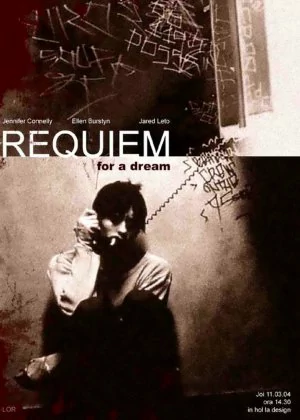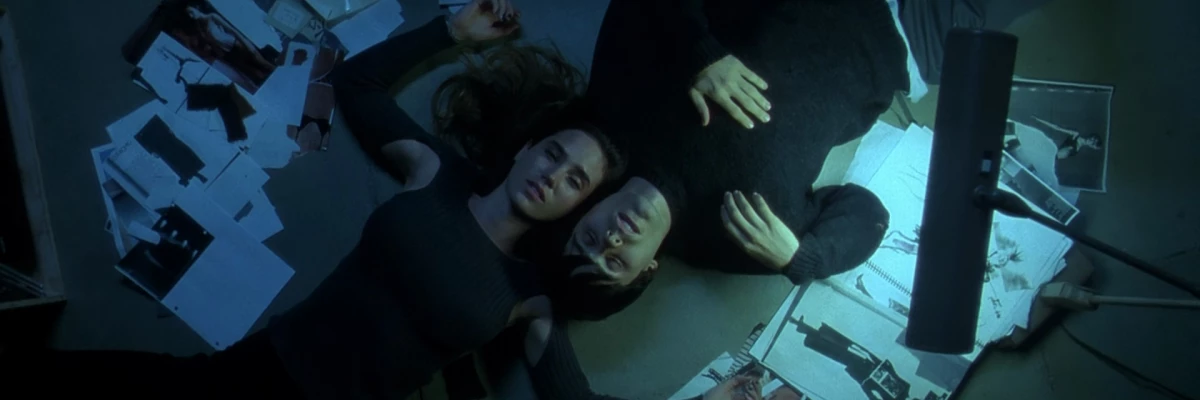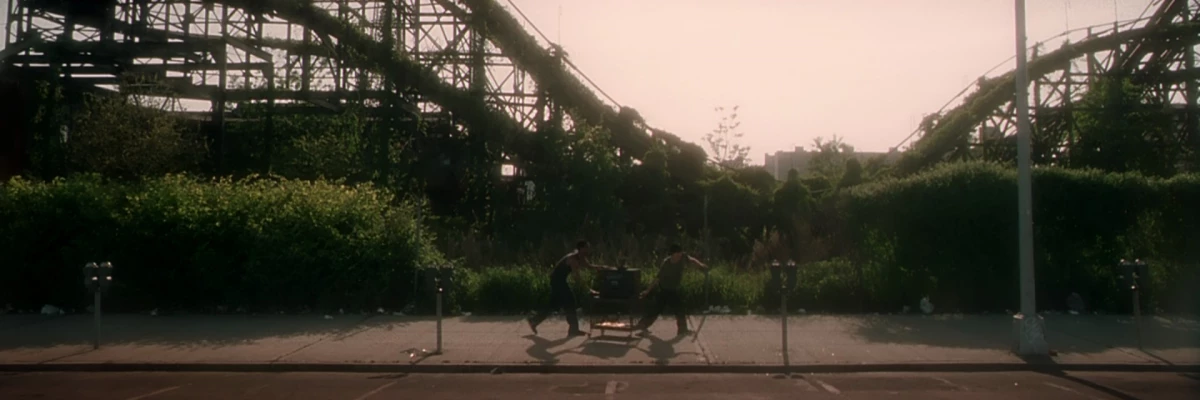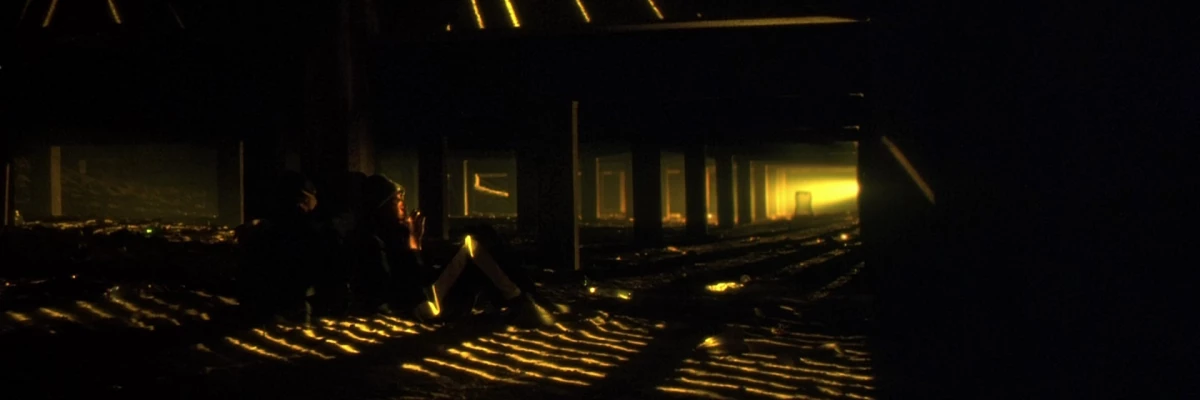Requiem for a Dream

When the buzz around his no-budget thriller Pi finally subsided, Darren Aronofsky had nowhere else to go but down. And yet, against all odds, he once again released a film that successfully challenged the status quo. Requiem of a Dream is a landmark film, a bridge between the cult and the commercial, a film destined to survive the test of time. It's not exactly a pleasant film, yet every time I sit down to watch it, it sweeps me off my feet all over again.

A film like Pi is pretty much impossible to follow up. From out of nowhere Darren Aronofsky burst onto the scene, leaving behind a unique film that became a cult favorite in no time. Pi is the kind of film that only comes around every few years, you simply cannot recreate that same impact with your next film. So Aronofsky looked for a new challenge. Rather than keep dabbling in obscure niches, he set out with bigger aspirations.
There is a group of films that survives on the very edge between arthouse and Hollywood. Films that very much bear the stamp of their director, are explicitly stylized and incomparable to other films out there, yet with enough commercial appeal to cross the gap between both worlds. A tight spot where films like Fight Club, Amélie, or Donnie Darko reside. With Requiem for a Dream, Aronofsky managed to join that select group of films.
If Pi is a film about the downward spiral of obsession, Requiem for a Dream is its addiction equivalent. Through two (arguably three) stories and three seasons, Aronofsky follows a set of four characters and their inevitable way downhill. Life has no shortcuts and when Aronofsky's characters desperately reach for a better future, they have no idea they are actually digging their own graves, sentencing themselves to a life of pain and misery.

Even though Requiem for a Dream is a very visual film, individual shots aren't all that impressive. Framing, coloring, and camera work are nice, but nothing truly exceptional. The camera tricks are cool, but by themselves, they don't result in overwhelming visuals either. This film is really all about the editing. Rhythmic, razor-sharp, and constructive. And it gets better with each consecutive season Aronofsky kicks off. Where summer (the beginning of the film) is still quite tame and on the safe side, come winter the film is one big visual blast.
The soundtrack is a masterpiece, plain and simple. Clint Mansell is at the controls once again and even though I prefer Pi's soundtrack (if only for the great selection of electronic tracks), Mansell's work here is astounding. Integrated seamlessly with the visuals, the music creates an audiovisual narrative that transports you right into the film. The returning theme is legendary by now, often (ab)used for trailers of different films and even adapted into other movie soundtracks. This is what a soundtrack should be like.
Fans of Pi are treated to a few interesting cameos, with Shoaib, Gullette, and Margolis all flying by. This film also kick-started several acting careers. Jared Leto (Mr. Nobody), Jennifer Connelly, and Marlon Wayans (yeah, even him) all put in great performances. But it's Ellen Burstyn who truly took center stage. Her performance as Sara Goldfarb (Leto's mom) is excruciating, one of the most memorable film characters that I have ever witnessed. Seeing her slip into madness is just beyond creepy and a memory for life.

Requiem for a Dream is a very rhythmic, musical film. Not in the sense that people break out in songs, but the structure, the repetition, the crescendo of the finale ... it's less like traditional storytelling, more like a song come to life. It's a risky approach, but Aronofsky managed to pull it off in such a way that both arthouse and commercial film fans found something to love. Do mind though that things get quite depressing during the second part of the film, so if you're just looking for a fun evening, shelve it a little while longer.
Aronofsky struck gold with this one. Personally, I still prefer Pi, but Requiem for a Dream is a much more accessible film while retaining Aronofsky's trademark style. It's a unique film, almost impossible to compare with other films out there. A film that is destined to leave a permanent mark on cinema history and forever a reference for all other Aronofsky films. If you can stomach the tragedy, it's a film you simply cannot skip as it truly has no weak points to speak of.